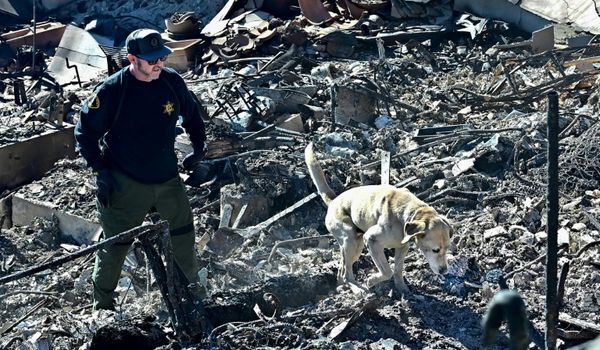Written by Lin Jia-he (Assistant Professor at the National Cheng Chi University Department of Law)
Translated by Brian Hioe
Does Taiwan's president have the authority to sell out the country? Politically and socially speaking, this is not easy to explain, and legally speaking, this is also a hard-to-answer question.
The question in dispute here is not whether the president could abuse his or her power, but whether an action constitutes as committing treason. If we are to focus on whether the president could betray Taiwan, it becomes a harder question.
From French patriot to national traitor
We might begin our discussion by examining a useful historical example: Philippe Pétain. During the Battle of Verdun during World War I, Pétain saved the French army from defeat and turned the tide of the war, leading the French army to victory against Germany. He then became a national hero known as the “Lion of Verdun.”
On June 16, 1940, Pétain replaced Paul Reynaud as prime minister and surrendered to Nazi Germany, ending a six-week war that had resulted in the defeat of the French. With the establishment of the Vichy French government, one-third of French territory left under the control of the government was known as the zone libre, with the official claim was that this preserved French national territory and sovereignty in its entirety. Yet the French parliament was effectively controlled by Germany.
When the Vichy government collapsed and relocated its capital to Germany in April 1944, Pétain returned to France to face trial in the following year. The indictment read: “In signing an armistice with Adolf Hitler to end the war, Pétain betrayed the French republic and national security, enthusiastically welcoming the German war machine to France and abandoning the French army.”
The defendant’s only reply in court was:
I state to the French people and not this court of law completely without legitimacy that I made peace with the Nazis in order to save France. During the four years of German rule, I prevented the worst from happening to the French people for the sake of when the country would be liberated, laying a foundation that was indispensable for today’s national restoration. In condemning me, this court only continues to divide France... I believe that I am not guilty and that I do not need to make any confession.
How should history remember this head of state — this former war hero?
Taiwan’s constitutional definition of treason
Like any other citizen, the president of the Republic of China (ROC) could possibly commit treason against the ROC Constitution.
Article 103, Line 1 of the ROC's Criminal Code states that “any person colluding with a foreign state or its agent with the intent that such state or other state start war against the Republic of China shall be sentenced to death or life imprisonment.”
In addition, Article 104 states that “any person colluding with a foreign state or its agent with intent to subject territory of the Republic of China to such state or other state shall be sentenced to death or life imprisonment.”
Both forms of treasonous behavior or plan to commit conspiracy are to be punished under the law. Article 113 specifies the limits of individual authority, in that without approval from the government, no individual may make a treaty with a foreign government. Article 114 specifies much the same, stating that individuals whose actions harm the ROC, or go beyond the terms of their authority as conferred by the ROC, also engage in the crime of collusion with a foreign government.
After the amendment of the constitution on June 19, 2019, treason as specified in the criminal code also applies to China, Hong Kong, Macau, and foreign hostile agents or their dispatchers. The terms of the Criminal Code are very clear on this matter.
Meanwhile, Article 3, Section 3 of the United States Constitution specifies supporting enemies of the U.S. in providing them aid or comfort constitutes treason. The constitutional interpretation has also stated the definition of treason can include treasonous speech. This is similar to the ROC constitution and other constitutions around the world.
Aiding external enemies and endangering the national interest is a similar crime between the president and regular citizenry. The concept of militant democracy tells us that enemies of the constitution and nation do not only come from the bottom, but also from the top, regarding the head of state and from the government.
As head of state, the president has the right to make and annul treaty agreements, to make peace or war. As stated in Article 52 of the ROC constitution: “The President shall not, without having been recalled, or having been relieved of his functions, be liable to criminal prosecution unless he is charged with having committed an act of rebellion or treason.”
Although the definition of treason may appear the same between the president and everyday citizen, there is an essential difference. If making an agreement or making peace with another country is within the scope of the responsibilities of a president, what about a situation such as Pétain’s? What should be treated as treason, in this case?
What counts as treason for a president under Taiwan’s Constitution?
This leads us to a paradoxical conclusion. What constitutes treason for a president? Even if a president does something not in the interests of the nation, leading many to lose faith in him or her, does this constitute treason? If he or she genuinely betrayed the country by working with foreign agents, what violates the responsibilities of a president?
Any person could betray their country. But compared with a regular citizen, the president is in a position that could commit treason in the name of responsibilities. This makes it difficult for the law to make distinctions.
There is a bottom line for a nation and its constitution: Affirming and maintaining the country’s survival and supporting its sovereignty. The trick is to stay in this gray zone.
However, advocating for the unification with another country in the absence of war or any international law procedure is a treacherous behavior. Any deviation from that should be criticized, but it would not necessarily be considered treason.
The victor sets the rules, but history is not written in absolutes. Standing at a certain point in history, the legal sovereignty of a nation is what allows us to test the limits of democracy. If we are to commit destructive actions or advocacy in which a third country or external force is implicated, that is treason.
By this definition, Pétain’s actions cannot truly be seen as having betrayed the country. Even if his conduct could be seen as reprehensible, they were not to the level of treason. As 17th-century French diplomat François de La Rochefoucauld said, “More men are guilty of treason through weakness than any studied design to betray.”
As a nation needs to protect itself and a democracy needs to have a bottom line to protect itself, can a president betray Taiwan? As I see it, the key is that democracy needs the determination for self-defense, so that even if one wanted to betray Taiwan — to negate its nationality and sovereignty — it would not be so easy to achieve. As such, the system of checks and balances is still necessary, and the exercise of presidential power should not infringe on sovereignty or the survival of the country.
READ NEXT: The ‘1992 Consensus’ Never Existed — Beijing Only Wanted ‘One China’
TNL Editor: Daphne K. Lee (@thenewslensintl)
If you enjoyed this article and want to receive more story updates in your news feed, please be sure to follow our Facebook.
Next article:









